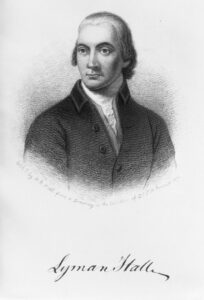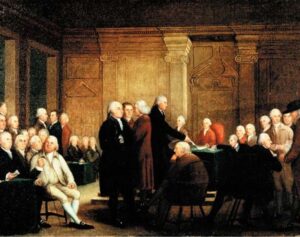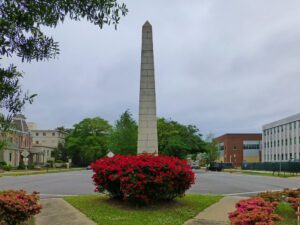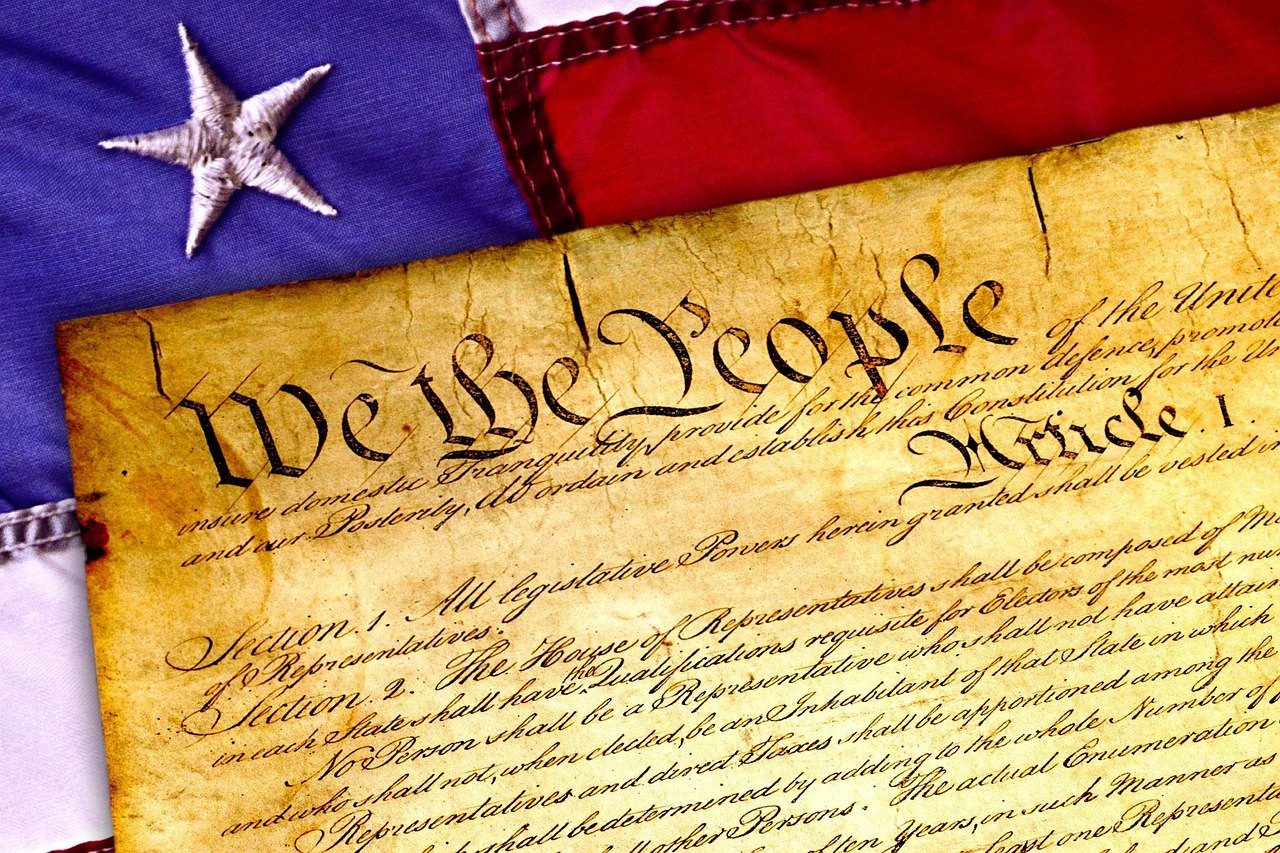
Lyman Hall was a physician, clergyman, and statesman. He was born in Connecticut but moved to South Carolina and then Georgia where he established a medical practice and a successful plantation. Involved in anti-British politics, he was elected to the Continental Congress and was a signer of the Declaration of Independence. The British destroyed his plantation and summer home, and he was charged with “high treason.” Hall escaped to Philadelphia where he remained until the end of the war. He then rebuilt his homes, re-established his medical practice, and was elected governor of Georgia.
Born on 12 April 1724 in Wallingford, Connecticut, Lyman Hall was the fourth of eight children of John Hall and Mary Street. His paternal grandfather, John Hall, was a member of the Governor’s council, and a justice of the colony’s supreme court. His mother’s father was the Reverend Samuel Street, Wallingford’s first pastor.
Hall studied theology at Yale College graduating in 1747. He then studied with his uncle, Reverend Samuel Street in Cheshire. He began his own ministry in 1749 in Stratford Parish (now Bridgeport).
In 1751 Hall was dismissed from his ministry due to allegations about his moral character that he confessed to. He was restored to good standing as a minister because his repentance was accepted. However, he lost his position and for the next two years he was a substitute preacher in churches needing a temporary minister.
Hall married Abigail Burr in 1752 but she died a year later without children. Later in 1753, he married Mary Osborn from Fairfield. She was the daughter of Samuel and Hannah Osborn. Lyman and Mary had one son who survived childhood.
Lyman gave up the ministry and returned to Yale to study medicine. He graduated in 1754 and began his medical practice in Wallingford.
Hall became interested in a group of Massachusetts Puritans who had settled in South Carolina in 1697. They had settled on the Ashley River near Charleston and named their community Dorchester. These people had been quite successful in South Carolina. Dr. Hall was impressed by their success and religious beliefs, and about 1755 he and a group of friends moved their families to the Dorchester, South Carolina area.
The Hall family and their friends were welcomed to the Dorchester community. Lyman set up his medical practice, which was quickly successful. However, the Dorchester population was increasing faster than land availability. Some chose to move to the Georgia Colony which had been established in 1733 by James Ogelthorpe and a small group of settlers. Plenty of undeveloped land was available and a group from Dorchester obtained a grant for 22,400 acres in the Midway District of St. John’s Parish (now Liberty County).
Hall and his family accompanied the group to Midway, and He again restarted his medical practice. Later Hall established his own plantation named Hall’s Knoll north of the Midway Meeting House.
The migrants had first turned their attention to building homes. They built adjacent to swamps that they drained to make land available for the cultivation of rice. Placing residences close to the swamps exposed the settlers to malaria resulting in high mortality. Lyman was a very busy doctor, and his professional skill and bedside manner endeared him to the community and adjacent county.
The town of Sunbury was laid out on high ground facing the Midway River. Hall and many other members of the Midway settlement built summer residences there to escape the reclaimed swamps during the hot summers when malaria and yellow Fever transmission was highest.
Despite the problems, life was good for the new settlers and Hall again became involved in politics. The Puritans were ardent supporters of resistance to the Crown and Hall was an outspoken proponent of liberation. He rapidly became a spokesman for St. John’s Parish.

The citizens of Georgia were mostly loyal to the British Crown and the royal colonial government. Parliament had given generous bounties to settlers, so the Royal Party was active, strong, and dominant. The Royal Governor, James Wright was popular, energetic, and able to block Georgia representation to the 1774 Continental Congressional session.
The governor’s loyalty to the crown and actions particularly upset the Puritans of St. John’s Parish. Their spokesman, Lyman Hall attended meetings of the “Friends of Liberty” in Savannah where he became allied with independence-minded Button Gwinnett from St. Catherine’s Island.
The loyalist colonial assembly of Georgia voted for more delays and more negotiations with the King, so the citizens of St. John’s Parish attempted to contract to deal and trade with South Carolina. This would bypass Savannah and put pressure on the Royalists. However, the plan was rejected by the Carolinians. The parish then voted to send Lyman Hall to the Continental Congress as their unofficial delegate.
Dr. Hall arrived in Philadelphia on 13 May 1775 and presented his credentials to the congress. He was unanimously admitted as a delegate. Since he did not represent the entire colony of Georgia, he could not vote on matters to be decided by the colonies.
British warships arrived in Savannah Harbor in January 1776. The colonists arrested the Royal Governor and prepared to defend the city. However, the warships were there to seize merchant ships loaded with valuable cargos of rice. In March 1776, the British ships departed with the rice and Governor Wright and his councilors.

The Georgia assembly then sent Button Gwinnett and George Walton to join Lyman Hall in Philadelphia to fill their official delegation to the Continental Congress. These three voted for the Declaration of Independence on 2 July 1776 and signed it on 2 August.
British troops occupied Savannah in 1777 and in 1779 they overran Sunbury and Liberty County. The British burned Hall’s plantation home and summer home to the ground. Hall was charged with “high treason,” but he and his family escaped to Philadelphia where they remained until the end of the war. In 1782 Hall and family returned to Georgia and once again he restarted his medical practice. Hall also began rebuilding his homes and plantation.
Hall was elected to the new Georgia House of Assembly and in 1783 was elected governor. Georgia had been devastated by the British and Hall’s initial efforts were to establish land offices and sell confiscated Loyalist property. Public debt and military bounties had to be addressed while keeping the peace with Spanish Florida and Indian tribes.
There was no bureaucracy established to perform the functions of government so on 8 July 1783, Hall called on the legislature in Augusta to establish infrastructure and encourage “principles of religion and virtue among our citizens.” He also championed public education which led to the founding of the University of Georgia in 1785.
Hall retired from public service in 1784 and resumed his medical practice in Savannah. He sold his Hall’s Knoll Plantation in 1785. He prospered during the next few years and in 1790 purchased the Shell Bluff rice plantation overlooking the Savannah River in Burke County.

Dr. Lyman Hall died at Shell Bluff on 19 October 1790 leaving Mary a widow with an unmarried son. Both died within a year of Lyman’s death. All three were buried in a brick vault on their plantation. In 1848, Lyman’s remains were moved to Augusta and reburied under the monument honoring the three Georgia signers of the Declaration of Independence. Signer George Walton is also buried there but Button Gwinnett’s body was never found.

Lyman Hall was an early advocate for independence, a signer of the Declaration of Independence, and instrumental in the establishment of the Government of the state of Georgia, but there are few Hall memorials. His original gravestone was moved and installed in the Center Street Cemetery in Wallingford, Connecticut in 1857, and there is a Lyman Hall High School in Wallingford. Hall County Georgia is named for him, and a statue of Hall was installed at the county government center in 2019. There is a bust of Hall in the Georgia Capitol building.
